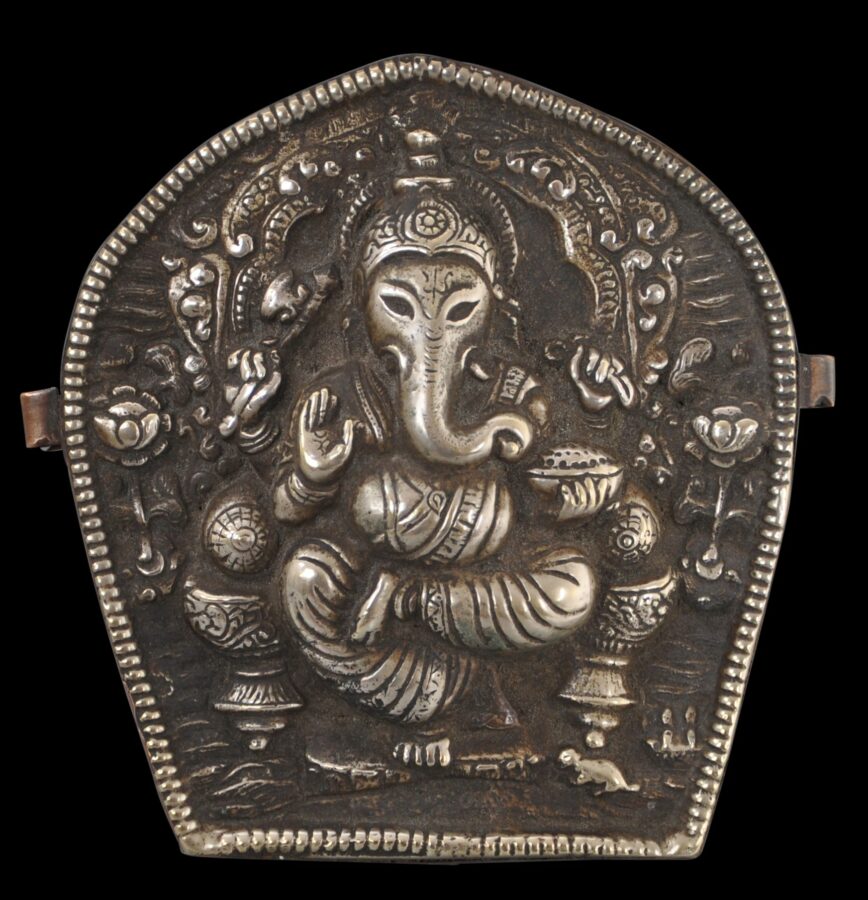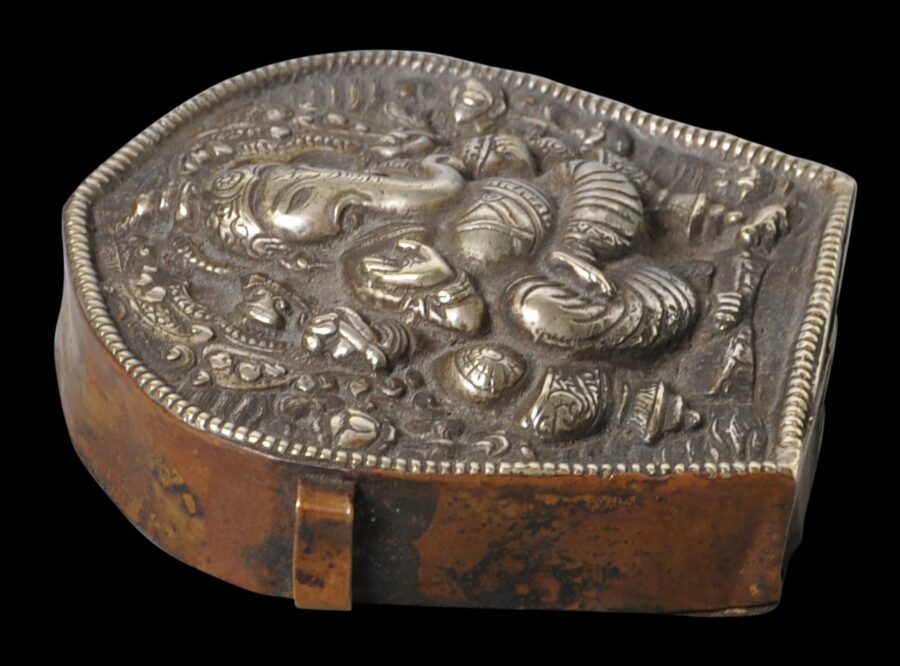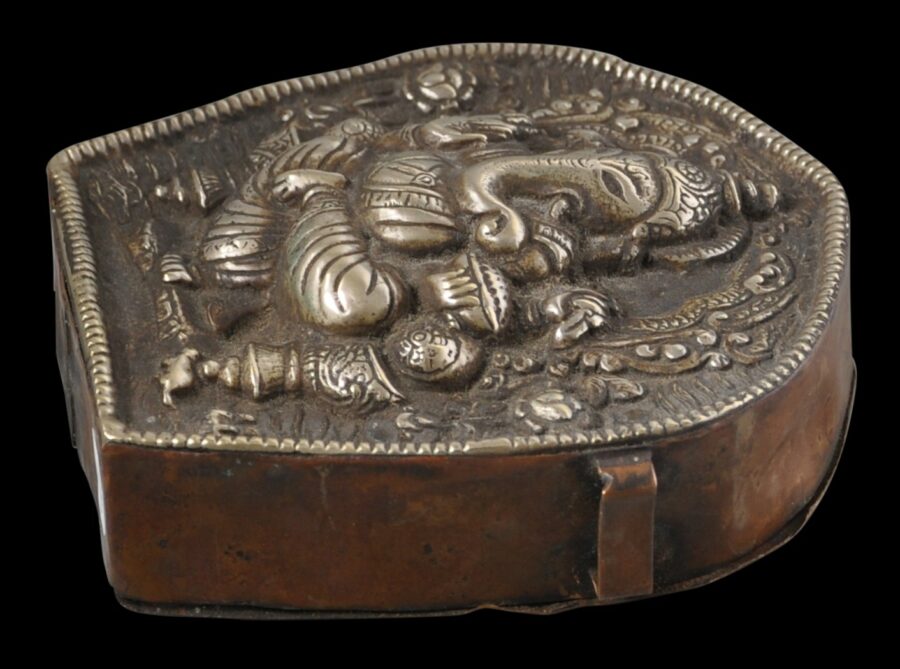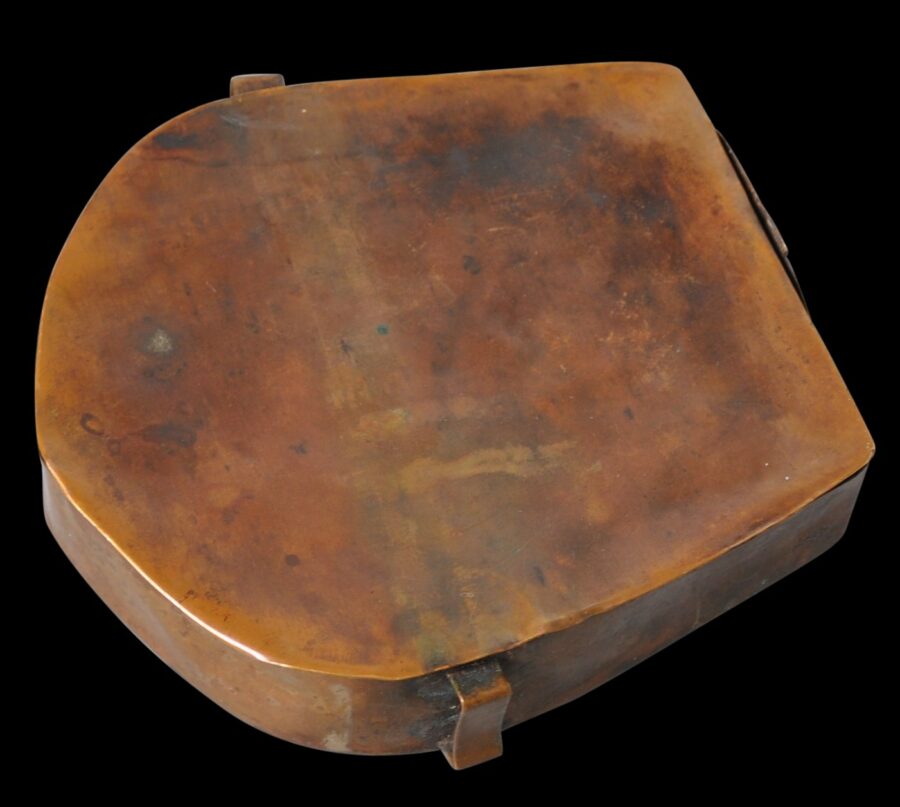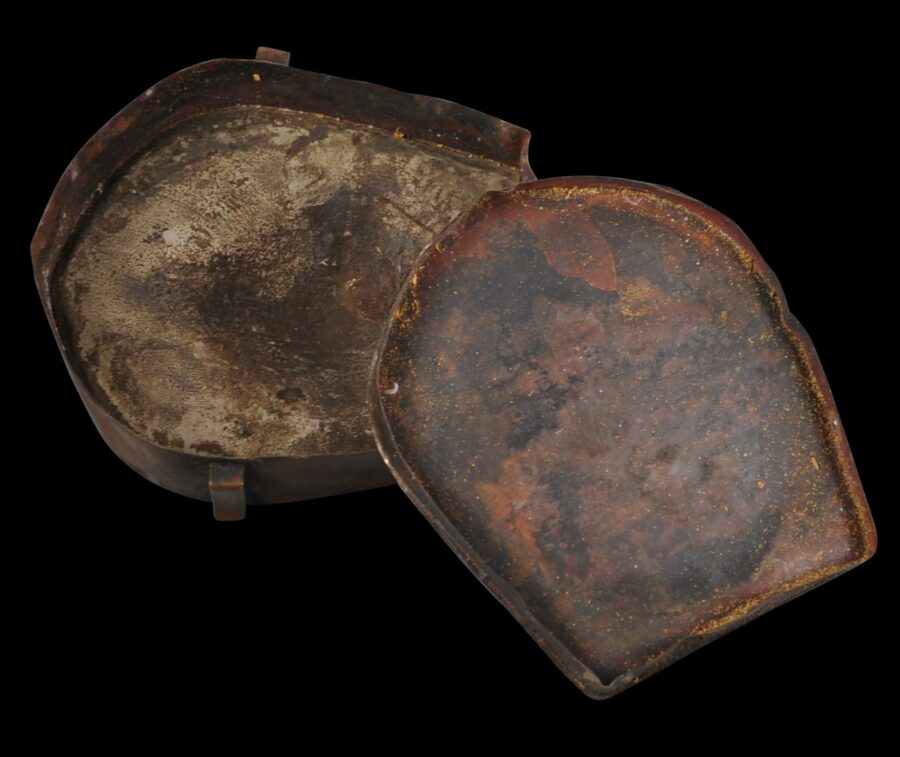Enquiry about object: 9143
Rare Tibetan or Nepalese Silver & Copper Ga’u Showing Ganesh (Ganapati)
Nepal or Tibet 18th century
height: 11.3cm, width: 11.1cm, depth: approximately 3.5cm, weight: 309g
Provenance
private collection, London.
This unusual ga’u box shows on the front Ganesh (known in Buddhism as Ganapati and as Tsog Dak in Tibetan) in chased and engraved silver. The rest of the box is of hammered copper.
A rectangular loop is on either side to allow the ga’u to be suspended from the wearer’s neck.
Ga’us are encountered in Tibet or areas influenced by Tibetan Buddhism, such as Bhutan and Nepal. No other Buddhist regions have anything like them. They were worn when travel was undertaken but otherwise were stored on a domestic altar.
The example here seems to be a cross-over piece between Nepal and Tibet. The form is Tibetan but the rendering of Ganesh is more Nepalese. Either it was made by a Hindu Newari craftsman for a Tibetan Buddhist client, or was made for the Buddhist community in Nepal which has retained significant Hindu influence.
Ganesh or Ganapati is a deity worshipped in Tibetan Buddhism and was introduced from India. The rendering here of the deity is more in keeping with the Indian-Nepalese tradition. The elephant-headed deity is shown with four arms, and seated on an upholstered throne with bolsters and with the left foot resting on the right thigh. He holds a bowl of sweets in the left hand. The upper arms hold attributes. The right tusk is shown missing or broken in keeping with Indian convention (in which case the deity is known as Ekadanta). A small rat is shown at the left foot – this is the deity’s vahana or celestial mode of transport.
The ga’u has obvious wear and age to the silver front and also to the sides. The ga’u is heavy in the hand and is without holes.
References
Pal, P. (ed.), Ganesh the Benevolent, Marg Publications, 1995.


